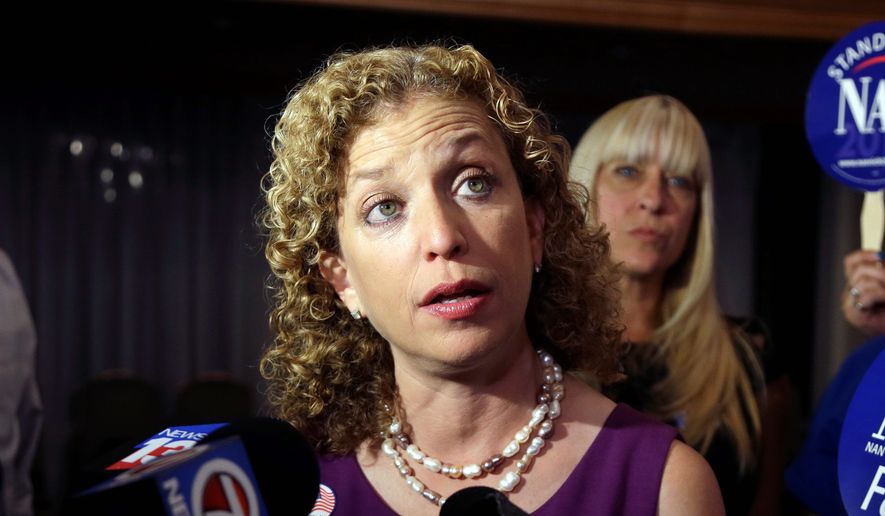Left with little choice, Democratic National Committee Chairwoman Debbie Wasserman Schultz caved Sunday and agreed to sanction more presidential debates, attempting to play catch-up with the candidates who were already well ahead of them.
The three top candidates — former Secretary of State Hillary Clinton, Sen. Bernard Sanders and former Maryland Gov. Martin O’Malley — have all agreed in principle to hold a debate this upcoming week, after Iowa’s caucuses but ahead of the Feb. 9 New Hampshire primary.
Mrs. Clinton and Mr. Sanders, the front-runners who are driving the conversation, have also agreed to more debates in March, April and even possibly in May, signaling a belief that the campaign could go longer than party leaders anticipated, with Mr. Sanders putting up a stiffer challenge to Mrs. Clinton than imagined.
Mrs. Wasserman Schultz, who had set the schedule of just six debates and had repeatedly shot down calls to reconsider, said in a statement Sunday that she now realizes there will have to be more debates than she’d wanted.
“Our Democratic candidates have agreed in principle to having the DNC sanction and manage additional debates in our primary schedule, inclusive of New Hampshire this week,” she said.
She said final details will be worked out on Tuesday, after the Iowa caucus results are known.
SEE ALSO: Iowa’s undecided voters pulled every which way
Four of the six debates have already been held. The final two on the schedule are one slated for Feb. 11 — just after the New Hampshire primary — and one on March 9.
Mrs. Wasserman Schultz took her retreat in stride, saying she’d always intended what was best for Democrats.
“We have consistently worked with our campaigns to ensure a schedule that is both robust and allows our candidates to engage with voters in a variety of ways, whether through debates, forums, or town halls, while also leaving them the flexibility to attend county fairs and living room conversations for the direct voter contact that matters so much in the early states. Those principles will continue to guide these negotiations,” she said.
Installed by President Obama as party chairwoman, Mrs. Wasserman Schultz, who is also a congresswoman from Florida, has been under fire for much of the last year — particularly from supporters of Mr. Sanders, who believed the national party was putting its finger on the scale in favor of Mrs. Clinton’s campaign.
But as Mr. Sanders’ challenge to Mrs. Clinton has paid off in rising poll numbers, the former first lady and loser of the 2008 presidential campaign has realized the potential benefits of more debates.
Now her campaign is accusing Mr. Sanders of backing down after both sides were unable to agree on a time and forum for a New Hampshire debate this week.
SEE ALSO: Rand Paul, Kentucky Republican, touts Iowa support: We’re going to surprise people
“Enough of the games. We are prepared to show up for a debate next Thursday and for three additional debates in the months ahead, which we can all work together to schedule. We hope Senator Sanders will be there too,” said John Podesta, Mrs. Clinton’s campaign chairman, in a statement late Saturday. “If the Sanders campaign decides to reject the debate next week, we’ll let them answer to the voters of New Hampshire.”
Mr. Sanders’ camp has said it wants the debates, but said it won’t be bullied by Mrs. Clinton, who had previously waved off suggestions of more debates only to reverse herself as the race tightened.
• Stephen Dinan can be reached at sdinan@washingtontimes.com.




Please read our comment policy before commenting.